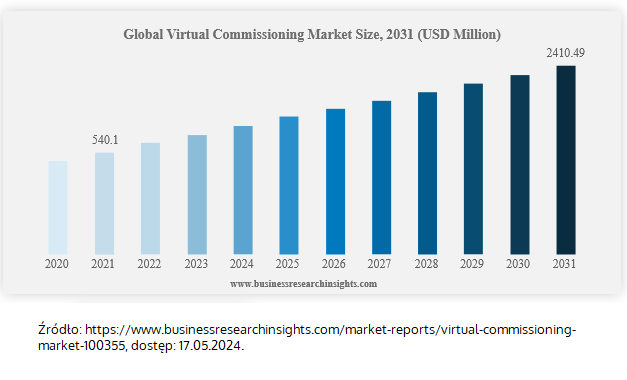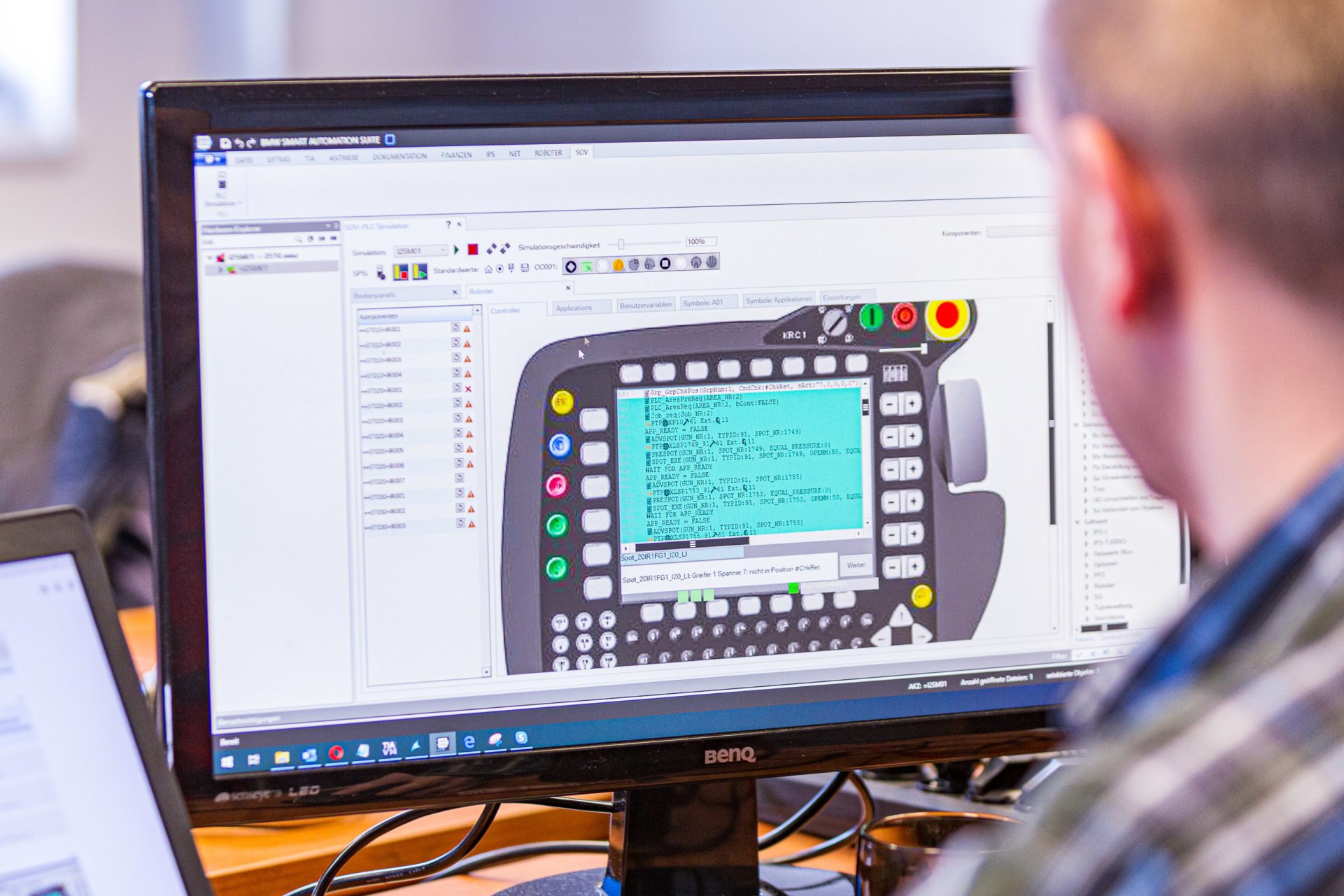
- Discover virtual commissioning – the technology that guarantees success!
Discover virtual commissioning – the technology that guarantees success!
In this article, you will learn about:
-
what is virtual commissioning?
-
how does virtual commissioning work?
-
what is the history of virtual commissioning technology for implementing automation solutions?
-
what are the advantages of using digital twin and manufacturing simulation technology to launch projects in factories?
-
in which industries are virtual commissioning processes applied?
The rapid pace of innovation and the development of new products drive companies to invest in modernizing their manufacturing facilities. Increasing market expectations, such as high quality, short production start-up times, quick implementations, error elimination, and enhanced safety in the factory, require advanced solutions. One of them is virtual commissioning. Although this concept was developed several decades ago, the technology needed to fully use virtual commissioning potential did not exist. However, today, thanks to technological advancements, virtual commissioning has become an integral part of designing and implementing automation technology of production processes, systems, and devices. Therefore, in this article, we will focus on virtual commissioning technology — what it is, how its value in the market is shaping up, what unique benefits virtual commissioning brings to manufacturing companies, and in which industries it is used.
What is virtual commissioning, and how does it work?
Virtual commissioning is the process of simulating the operation of production systems and devices in a virtual environment. This technology allows for testing and optimization of both the mechanical and software aspects of a system before its physical assembly in a production facility. This technology enables the reduction of actual start-up time for robotic production lines and workstations, early risk analysis, detection of errors, and improvement in the quality of systems at the design stage of the project. A key element of this process is the creation of a “digital twin”, which accurately replicates the real functioning of a factory and allows for digital simulation of the entire development of the production facility. This enables us to monitor process parameters, control, and improve the performance of machines and robots, and reveal bottlenecks, production gaps, and processes with low efficiency.
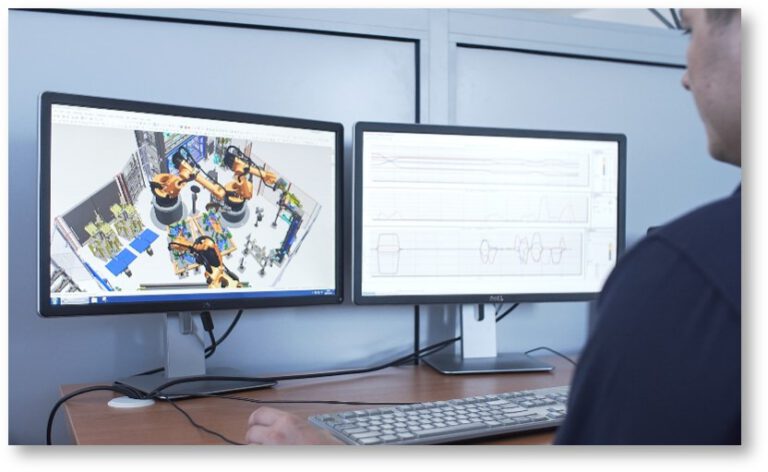
The evolution of virtual commissioning
The origins of virtual commissioning date back to the 1990s, when the development of computer technology and software enabled the creation of the first manufacturing simulations of industrial systems. The first applications were in the automotive industry, where production lines and industrial robots were tested in computer programs. In the 2000s, virtual commissioning began to be more widely used across various industrial sectors, including industrial automation, energy, and logistics. The advancement of Industry 4.0 digital technologies, such as the Internet of Things (IoT) and artificial intelligence, has further refined this technology, making it more precise and efficient.
The market for virtual commissioning technology
According to a report by Business Research Insights, the global market value of virtual commissioning technology was $540.1 million in 2021. The report's forecasts indicate that by 2031, it will reach a value of $2,410.49 million, with a CAGR of 16.0% over the forecast period.
The Smart Factory is the direction in which manufacturing companies must evolve to remain competitive at the market. The report confirms that virtual commissioning solutions, gaining in popularity, are becoming an essential tool that uses 3D technology to simulate the development of a digital production plant.
Advantages of virtual commissioning in automation solutions design
Reducing commissioning time and costs
Traditional physical commissioning of industrial and manufacturing operations is a time-consuming and challenging process, especially when trying to keep up with the rapidly changing modern market. Simulation technology such as virtual commissioning helps significantly speed up the implementation of new solutions and reduce costs associated with the physical testing of machines and processes on-site. Virtual simulations in a digital environment allow for faster detection and correction of design errors and shorten the commissioning time of project implementation.
Increasing safety in the production plant
Real-time testing systems eliminate the risk of equipment damage, dangerous production processes, and hazards to factory workers. Simulations allow for the safe testing of various emergency scenarios. This allows clients to check how the prepared project version works virtually and ensure that the project is correct in every technical aspect.
Improving the quality of processes and products
Repeated testing of different configurations allows for system optimization in terms of performance and reliability. The result is higher quality final products and the implementation of the best solution. Virtual commissioning enables clients to verify that the system meets their requirements and that all selected parameters perform their tasks. Conducting virtual commissioning also forms the basis for the client's acceptance test (FAT – Factory Acceptance Test).
Scalability and flexibility of simulated projects
Virtual commissioning allows for easy scaling of projects and adaptation to changing requirements. Companies can respond more quickly to market needs and adjust their solutions accordingly.
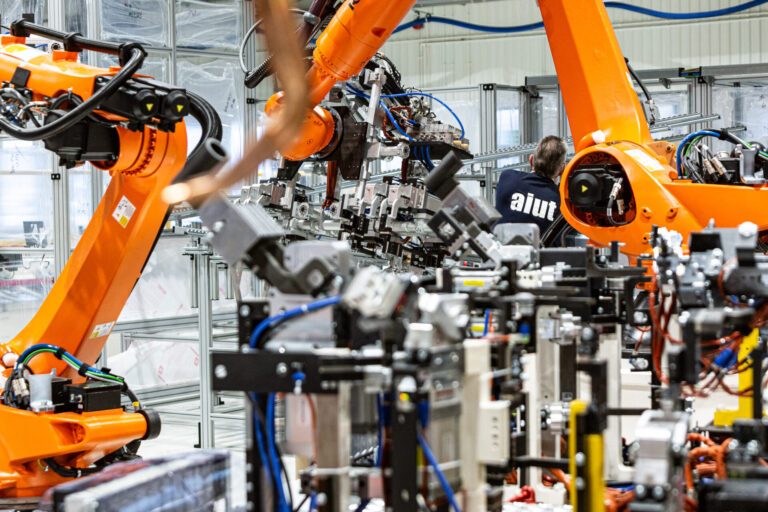
Applications of virtual commissioning
Virtual commissioning technology has a wide range of applications across various industrial sectors. For example, in the automotive industry, it is used to test production lines, industrial robots, and new models of autonomous vehicles like AMRs or AGVs. In the energy sector, it is used to test energy management systems, increasing the efficiency and reliability of supply. Logistics companies use virtual commissioning to optimize warehouse processes, such as the automation of sorting and packing.
Virtual commissioning technology used by leaders in industrial automation and robotics
AIUT, the largest Polish integrator, offers advanced solutions for automation and robotics. In implementation, we use modern simulation technology like virtual commissioning, which allows for accurate replication of real systems in a virtual environment. We also integrate virtual commissioning technology with other technologies, such as the Internet of Things (IoT), allowing for even greater precision and efficiency in designing production lines and workstations. Learn more here.
Aformic, a subsidiary of the AIUT group, conducts virtual simulations of the system using simulation software tools (e.g., Plant Simulation) before deploying the autonomous mobile robots of the F series. Digital replication of the work environment and processes allows for virtual testing of the intelligent intralogistics platform Aformic before its actual implementation and further optimization. This process is crucial in route modeling and robot design.
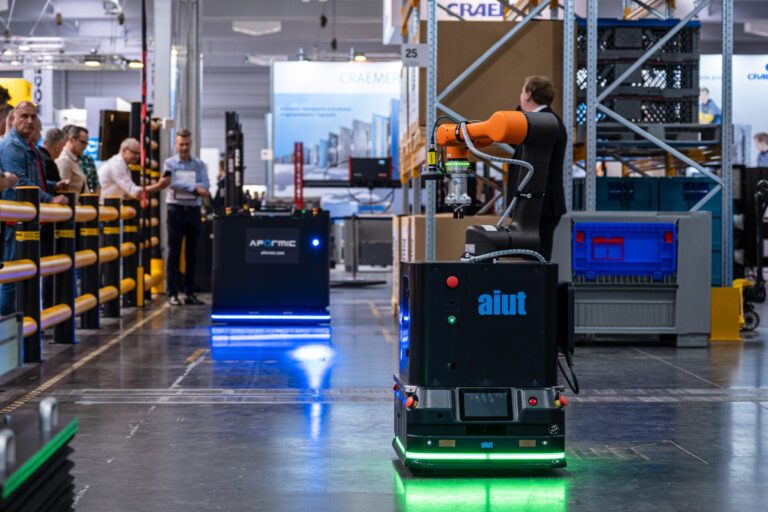
Summary
Virtual commissioning and digital twins are innovative tools that revolutionize project management and testing of production systems in many industries. This technology allows for cost reduction, shortened implementation times, increased safety, and improved product quality already at the design stage. Industry efforts to meet growing consumer expectations and deliver high-quality products will drive the growth of the virtual commissioning market share. Therefore, the role of virtual commissioning in initiating production processes will grow in the future. Companies that develop a smart factory using virtual commissioning technology will gain a competitive edge in the market and the ability to execute projects and implement new solutions more quickly.
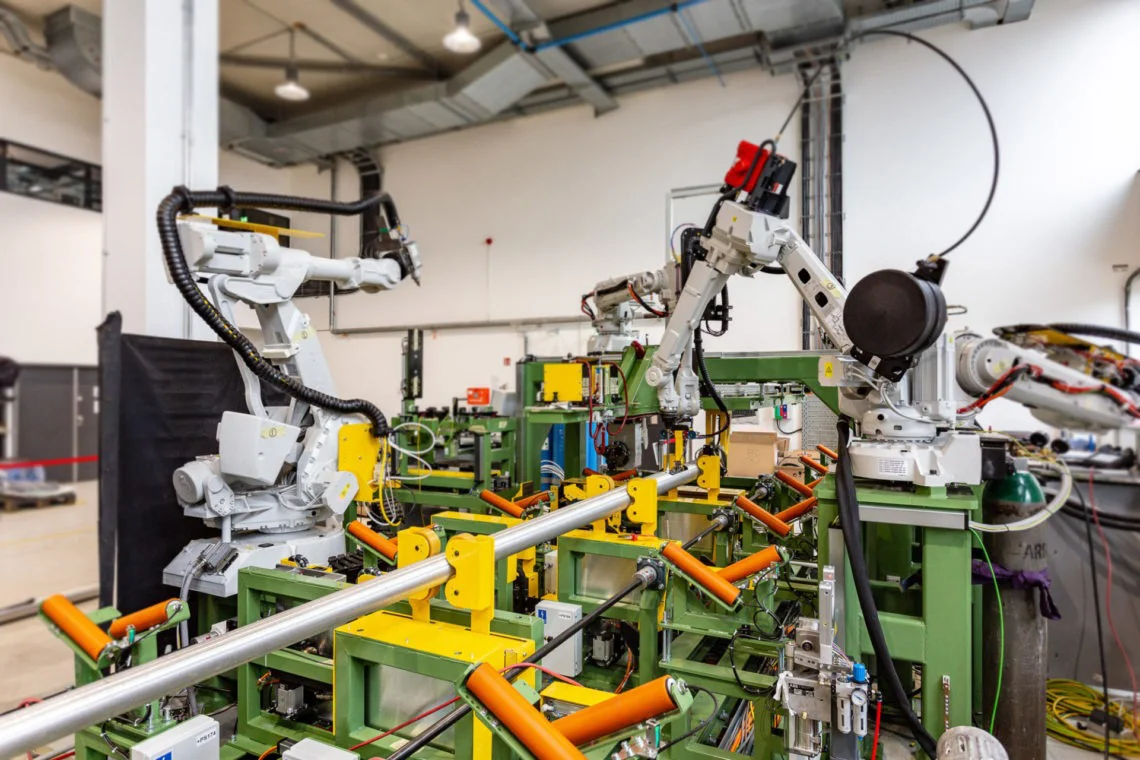
Learn more about virtual commissioning technology!
As the largest Polish integrator in the robotics and automation industry, we are eager to share details about our clients' digital factory projects where we have utilized virtual commissioning technologies.
